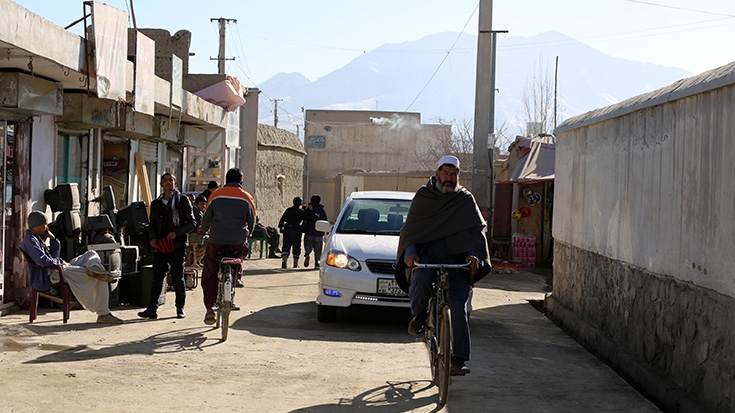FAZIL BIG, Kabul Province – Mohammad, 40, is a hawker. Traveling street to street, he sells items ranging from children’s toys to women’s cosmetics from his handcart. Reza is a resident of Fazil Big, a neighborhood on the western outskirts of Kabul Province where he lives with his wife, two daughters, and son.
“I leave my house every morning and sell goods all day in the alleys and streets of Fazil Big,” he says. “Before the roads improved, the alleys were unpaved, muddy, and dusty. It was very difficult for me to walk and circle even one street a day. Now my cart moves very smoothly over the cemented surfaces and I can circle several streets every day.”
The paved alleys, part of a road improvement project, have greatly increased his earnings. “I used to make 100 Afghanis ($1.75) per day, but now I make more than 300 Afghanis. I am thankful that my life has improved,” he says.
“Through the project, streets and alleys were first pebbled, and then cemented in three different areas of Fazil Big: Gulshan, Charkhi, and the center of Fazil Big,” says Mr. Rasul, ARAP Senior Engineer in Kabul. “In total we paved three kilometers of streets in the area.”

